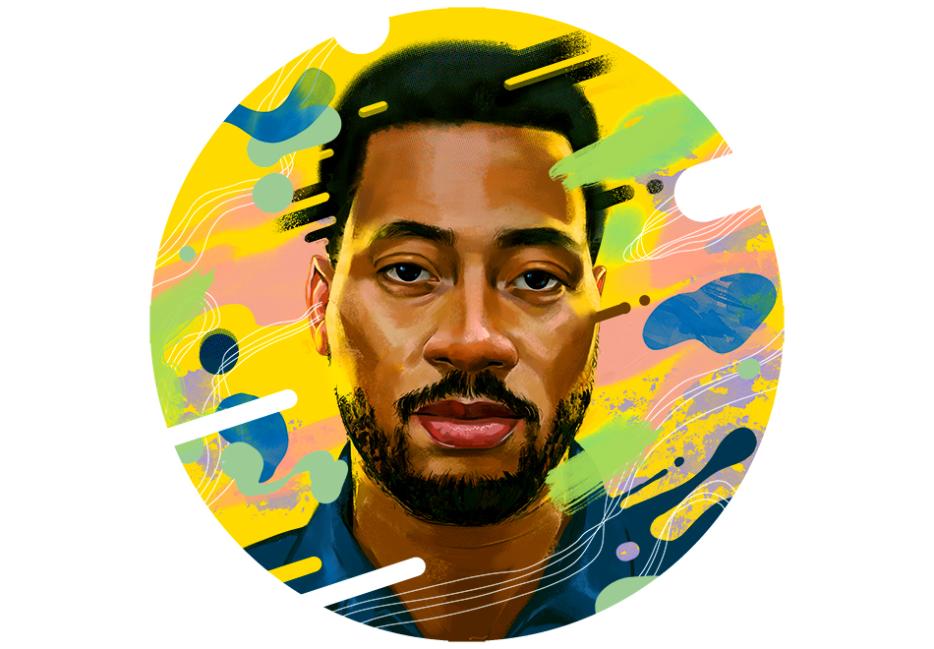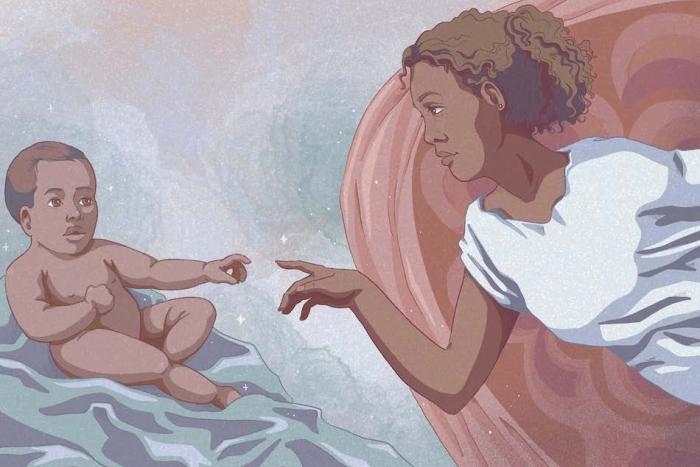Welcome to Mind in Bloom, a column deconstructing current events, music and art.
On “Speed Drive” from last year’s Barbie soundtrack, Charli xcx dropped the iconic line, “on the mood board, she’s the inspo.” Now the tables have turned and she’s the one leading the PowerPoint presentation. Brat is what happens when an auteur is given a budget and the catbird seat in the boardroom. A multipronged cross-cultural assault on every level of media, the rollout for Charli xcx’s Brat will be studied for years to come. No stone was left unturned.
Box trucks in London with “Charli xcx sextape” and her fiancé’s name on them in the album font. A “Brat wall” erected in Greenpoint with different messages on it. A viral music video starring an it girl squad including Chloë Sevigny, Julia Fox and Rachel Sennott. A raucous Boiler Room party with a record-breaking 25,000 RSVPs where she DJed and hyped up the crowd while wearing an instantly iconic shirt with “CULT CLASSIC” printed on the front. Carefully curated remixes with Addison Rae, Robyn, Yung Lean and most notably, an internet-breaking turn by Lorde. The rollout was self-referential and meta, even featuring a list of possible marketing ideas from “Charli gets her nipples pierced at Claire’s” to “Charli gets caught shoplifting at the mall and leaks the CCTV footage.”
During this epic monthslong rollout that would likely feel obnoxious in less capable hands, Charli has been spelling out the concept behind her album in subtle ways. Brat is an album that explores the rich territory between high and low art with no judgment, a singular effort where Charli xcx has bravely cannonballed into the trash, coming up for air with her hands filled with treasure. Charli’s social media was leveraged with razor sharp accuracy, carefully stoking very specific controversies that would later be more explicitly referenced on her album. On January 25th, she tweeted “everything i do is an extension of my art.” In a March 1st interview on TikTok with Kareem Rahma of @subwaytakes, she shocked the internet by claiming that “music is not important” because “a great artist to [her] is more than the songs.” Looking back, this feels like foreshadowing for Charli’s world-building approach on Brat, as everything around the album is specifically designed to feed into and embolden the actual recordings themselves.
For instance, “Apple” has a chorus about driving to the airport, which is also the location for the “Von dutch” video. Ribald bonus track “Guess” has her describing her pink underwear, the same colour she wears in the provocative single art for “360.” Charli features Swedish icons Robyn and Yung Lean on the remix for that song. She playfully references their shared history as child stars on the track. Sweden holds significance for Charli: her first big hit was with Swedish duo Icona Pop, and “Apple” was written there while she stayed with the couple who inspired the song “I think about it all the time.”
It’s subtle but effective in a way that feels less contrived than the Easter egg-obsessed exploits of other pop artists who are content to turn their fans into Jim Carrey from The Number 23. This thematic consistency is the hallmark of a complete artistic vision and is absolutely crucial to extend the life of an album in today’s music streaming architecture that is ravenous for new content and uninterested in encouraging deep listening.
On March 14th, Charli tweeted “i think the constant demand for access to women’s bodies and faces in our album artwork is misoginistic [sic] and boring.” Every Charli album leading up to Brat prominently featured her image on it. Charli had the artwork changed for her complete discography to coincide with the Brat release. These covers mirrored the omnipresent typography used for the album: glitchy, intentionally pixelated lowercase black Arial text spelling out the album title, superimposed onto a puke green background. A Brat meme generator was created and has been used liberally. In the context of her tweet, what was initially a somewhat beguiling cover choice is revealed as one with a stronger sense of intentionality, a radical decision during an algorithmic era that asks for our faces lest our posts be relegated to the darkness.
The cover is evocative of the indie sleaze era that Charli seeks to valorize with Brat, the bygone 2000s period where maximalism reigned, scenes and genres freely commingled and the party felt like it might never end. A time when it seemed as if the entire world was ready to Uff. This was also around the same time that Charli was discovered as a teen on Myspace, leading her to perform at raves that her parents would drive her to. You can see her natural comfort in these environments during her city-stopping performances at The Lot Radio and Boiler Room.
It all felt like an intentional shift back to her rave roots after 2022’s Crash, which seemed like a concept album of what might happen if Charli made a regular capital-P Pop album, glistening with hits like “Good Ones” and “Beg for You.” But in my mind, the last few mainstream releases she’s had have lived in the shadow of her 2017 mixtape Pop 2. This wildly eclectic collaboration with producer A.G. Cook (who is the Giorgio Moroder to her Donna Summer) was the truest representation of the duality of Charli xcx. It documented the conflict between being a literal child of the underground and one of our generation’s greatest pop songwriters, someone with all the tools that should lead to superstardom but for whatever reason hadn’t.
The albums that followed seemed to be reaching for the provocative edge of Pop 2 while firmly keeping a foot in the mainstream pop world. The hedging made these releases feel compromised. That tension is also at the heart of Brat, but the balance has never been better. The album zips by, confidently bouncing across the entire spectrum of pop music from the last few decades. “360” and “Von dutch” are conceptually tied to the album’s themes but also stand on their own as some of her greatest pure pop songs.
Brat often finds Charli revelling in her influence on the pop world, which has become harder and harder to ignore, especially in light of records like Camila Cabello's C,XOXO appearing on the scene. Since its release, Brat has practically become a way of life, an ethos unto itself. “Brat Girl Summer” is a trend that has been bandied about. In her interview on the Tape Notes podcast alongside producers George Daniel and A.G. Cook, they all discussed how something being in “Brat world” or not figured into their creative process while making the album.
Similar to other great British poets of the club like Soft Cell's Marc Almond and Neil Tennant of the Pet Shop Boys who mined the elegiac sadness lurking around the edges of nightlife, Charli expertly captures the vulnerability and fallibility that lies behind the party girl persona. She cements herself as someone with great familiarity with the twisted dream logic of the rave, where a night starts in the morning and you go to sleep when the sun is up.
One major influence on Brat is The Streets a.k.a. Mike Skinner, a rapper she references on "Club classics" who once bragged about being “cult classic, not bestseller” and explored the darkness hidden beneath the mirror balls and lights with stunning specificity, elevating the mundane details of the rave to operatic levels in the process. Charli’s pen is exacting: clever character study “Mean girls” is reminiscent of fellow auteur Grace Jones on songs such as “Party Girl.”
Penultimate track “I think about it all the time,” a delicately sweet song about considering parenthood, is immediately contrasted by brash album closer "365," a sped-up remix of "360" where Charli goes full-on party monster, ripping lines of blow and spewing a depraved party mantra: “Don’t sleep, don’t eat, just do it on repeat.” Similar to Kendrick Lamar on Mr. Morale & the Big Steppers, Charli doesn’t strain to make sure the listener still likes her by the end of the album. It’s an ego-destroying forty-one minutes that resembles what therapy is actually like, eschewing the therapy speak, trauma porn and superficial gestures of today’s mainstream artists for a warts and all look at pop star anxiety.
Over the years, Charli has been the subject of condescending articles opining on how she makes pop music but isn’t actually that popular. That story is over in the wake of the Brat era. The album peaked at #3 on the Billboard Hot 100, and is at the forefront of a cultural reset. A shining example of how the art of the album goes beyond just making music, Charli xcx’s Brat solidifies her place as one of the most important figures in pop music today.






